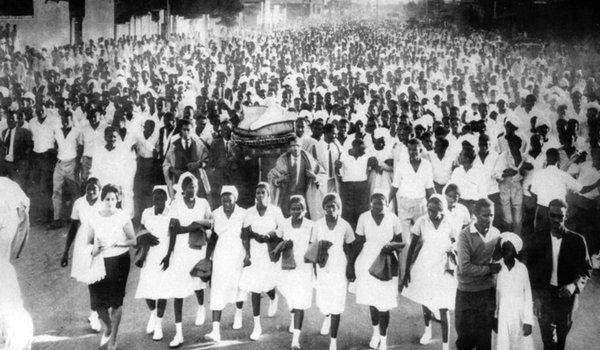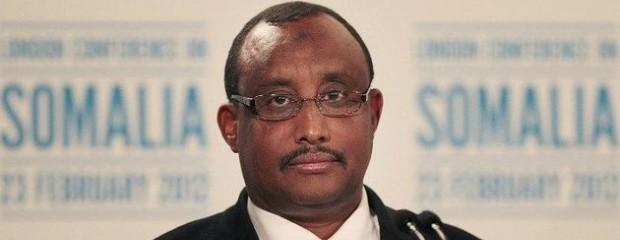Book Review Response: the Khartoum Springs, Civil society and State Security – By W.J. Berridge

I would like to thank Dr Alex De Waal for his very generous review of my book, Civil Uprisings in Modern Sudan: The “˜Khartoum Springs’ of 1964 and 1985. He has raised one or two issues I may have under-emphasized slightly, so I would like to clarify my position regarding these points.
First of all, I do acknowledge his argument that the professional activists’ tactical expertise was a real asset to them during the Intifada. I think De Waal puts it very shrewdly when he says they “˜may not have had an explicit and well-articulated strategy, but they possessed both a repertoire of tactics and a depth of leadership that provided organizational resilience’.
The distinction between strategy and tactics is an important one. What I was getting at when I observed that the 1985 generation were not necessarily more “˜meticulous planners’ than the current one (p. 206) was that in terms of articulating a broader plan of action for the removal of the regime, today’s oppositionists are – partly due to the legacy of the Intifada itself – far better prepared for a potential transition even if they are probably less capable of effecting one.
The New Dawn Charter of January 2013, for instance, specifies a length for the interim period (four years), whereas in 1985 the divisions between the parties and the unions over this issue and other contentious points gave the military the opportunity to take over the Intifada via the Transitional Military Council.
It is true that the substitute leaderships demonstrated the organizational resilience of the professional movement, as De Waal observes, and the majority of the professionals who signed the April 5 National Charter were replacing imprisoned colleagues. However, due to the absence of a pre-planned transitional strategy, they also contributed to its divisions. Jizouli Dafa’allah, the President of the Doctors’ Union and future transitional prime minister, later insisted that he would never have sanctioned the decision made by the shadow committee to invite the political parties to join the National Alliance, which was taken after he was imprisoned (p.114).
The principal challenge that today’s oppositionists face – and I think we agree here – is that they no longer possess control over the various civic institutions that could effect a general strike. Still, there are some grounds for hope – in 2010 and 2011 the Doctors’ Union asserted its independence from the regime with two well executed strikes (p. 207).
In 1985 almost all of the labour unions were controlled by the regime, and it was only recently that the student opposition had reclaimed control over the Khartoum University unions from the Islamic Movement. Meanwhile, student democrats won a number of victories over their NCP affiliated opponents in the Khartoum University Student Union in the 2000s (p. 208), and if a number of professional unions should happen to acquire independent leaderships all at once, much might still be possible.
However, I do acknowledge De Waal’s point that making this civil society “˜deep’ will be a problem – it is not clear whether today’s oppositionists have strong links to the army and police, and even if they do, the various parallel security organs are far stronger now than they were in 1964 and even 1985. Moreover, the regime prioritizes using them to control Khartoum, knowing that it has been the historic epicentre of civil protest (p. 213).
Part of the reason I slightly underemphasized the impact of the general strike at Khartoum airport was that I felt that by 5 April the President had very little real chance of getting back into power, and a battle to define post-Nimeiri scenarios had begun. Nimeiri had lost almost all local and international support, as demonstrated by the humiliatingly poorly attended pro-Nimeiri demonstration of 2 April and then the efforts of both the Americans and the Egyptians to prevent his return to Sudan.
The deputy commander in chief of the army, Taj al-Din Abdullah Fadl, would later tell al-Siyasa newspaper that Hosni Mubarak was in contact with the army leadership throughout 5 April and informed them that he was not going to allow Nimeiri back to Sudan till they had replaced him as President. Meanwhile, the President’s closest advisors were travelling in the opposite direction to him – for instance, one of the his most infamously corrupt officials, Bahieddin Idris, was thwarted by the closure of the airport, preventing him catching the flight he had booked to take him outside of the country, ensuring that he would have to face transitional justice (p. 190).
With regard to the interception of police radio transmissions, I agree that this does highlight the ability of the professional activists to fight the regime’s intelligence apparatus. It is important to bear in mind that it was police not State Security Organization (SSO) signals that were intercepted, and the various professional activists had much more support within the police and army than they did within Nimeiri’s premier intelligence establishment.
However, since the police themselves were reporting on the movements of the State Security Organization in the transmissions that were intercepted (p. 60), this could well have helped the professional activists. Meanwhile, contacts within the military helped to keep the National Alliance leadership aware of the army’s planning and enabled them to adjust accordingly (p. 137).
At the same time, the main reason the army and police did not act against the demonstrators was their disaffection with the regime, not any lack of intelligence. This was not the case with the SSO, but one might argue that the reason they failed to pre-empt the Intifada was that by moving against the Islamic Movement in mid-March 1985 – allegedly as a result of American pressure – Nimeiri had deprived his security forces of access to the then nascent “˜Islamist-security network’ De Waal refers to.
As observed in the review, this grew stronger following the Intifada, but even before 1985 the Islamists had begun to penetrate the SSO and the future security chief Salah Gosh had helped establish an “˜intelligence bureau’ as part of the Islamic Movement’s student wing, which helped the regime control campus dissent (p. 107). However, Nimeiri’s alliance with the Islamists was always uneasy, and two weeks before the Intifada, he ordered his security services to arrest the entire leadership of the Islamic Movement (p. 50).
In breaking with the Islamists, he thus lost access to the campus spy networks which might have provided his intelligence apparatus with an early warning of the campus protests that acted as the spark of the Intifada. This is why I argued that the real success of De Waal’s “˜deep civil society’ was not the removal of Nimeiri – Nimeiri effectively handed the Intifada to them by sabotaging his own regime – but in ensuring that there was a successful transition to democracy, and not simply the emergence of another military autocrat.
Umar al-Bashir has learned from the manner of Nimeiri’s downfall in this regard, as well as others – he has cast off his Islamist allies gradually, one by one, from al-Turabi in 1999, to Salah Gosh in 2011, and finally Ali Uthman and Nafie Ali Nafie in 2013.
W.J. Berridge is the author of Civil Uprisings in Modern Sudan: the ‘Khartoum Springs’ of 1964 and 1985






